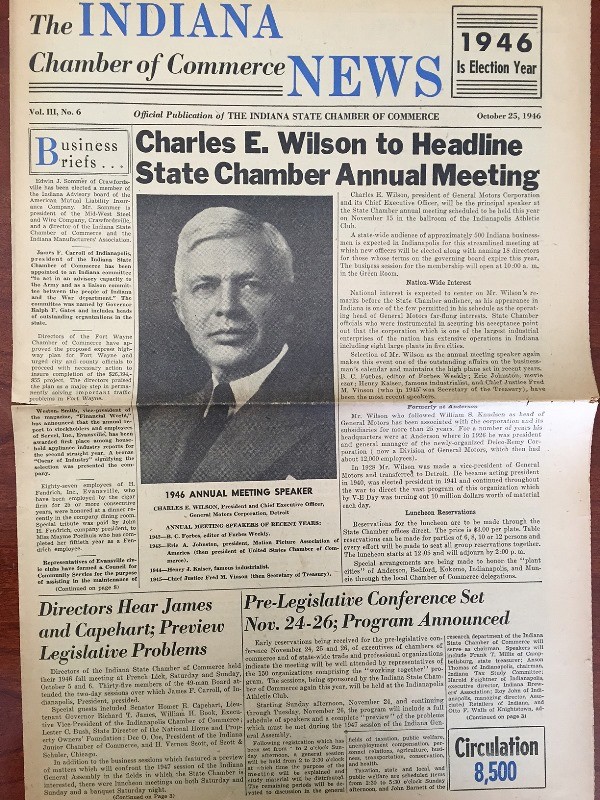 This “physical presence” test was affirmed in Quill v. North Dakota (1992) when the Court ruled that North Dakota could not require a mail order company to collect its sales tax, again citing the requirement as an unreasonable burden on interstate commerce. But the Court’s opinion seemed to acknowledge that different circumstances could yield different results.
This “physical presence” test was affirmed in Quill v. North Dakota (1992) when the Court ruled that North Dakota could not require a mail order company to collect its sales tax, again citing the requirement as an unreasonable burden on interstate commerce. But the Court’s opinion seemed to acknowledge that different circumstances could yield different results.
And much has changed since 1992. Most notably, the internet was only in its infancy then and online retailers were unheard of. The application of Quill to a transaction and industry that barely existed when the opinion was issued has generated growing debate over the last 10 to 15 years. Pressure to overturn Quill has steadily grown as internet sales swallow up a larger market share each year, traditional brick-and-mortar retailers see their profits decline, states see their revenues decline and the “burden” associated with collecting the taxes has been steadily lessened by technological advances.
Congress has the authority to legislatively overturn Quill but countervailing political forces have impeded it from remedying the situation. Consequently, states have legislated an array of their own remedies, in the form of imaginative and constitutionally suspect laws. As part of a concerted effort across the country, advocates for overturning Quill began a campaign designed to present a new basis for testing the Quill holding.
It encouraged states to impose laws they knew would be challenged, in order to get a fresh case before the Supreme Court and give them the opportunity to argue Quill’s legal obsolescence. The laws would purport to establish legal nexus based on the level of sales that online businesses conduct in their state. This concept is referred to as “economic nexus”.
In comes South Dakota – the first state to pass legislation imposing the collection requirement based on a defined economic nexus. If an online seller has more than $100,000 in sales or more than 200 separate sales to South Dakota residents, then that retailer must collect the sales tax in those transactions. The South Dakota law served as the model as a few other states passed nearly identical legislation, including Indiana (in 2017). South Dakota fast-tracked the litigation and here we are with a potential landmark case before SCOTUS.
Will Quill be overturned? It seems very possible. First, the Court took the case which could be interpreted as a recognition that the issue needs to be revisited. Second, three justices have questioned the application of the Quill case. And many stakeholders have presented legal arguments to support and encourage the Court to reach an updated result. Forty amicus curiae (friend-of-the-court) briefs have been filed since the Court decided to hear the case in January.
These include briefs filed on behalf of: various retail business associations, 41 states collectively, the National Governors Association, the National Conference of State Legislatures, the Council of State Governments, the National Association of Counties, the National League of Cities, four U.S. Senators (two Republicans, two Democrats) and the Solicitor General of the United States.
Numerous other organizations filed briefs, including: the Multistate Tax Commission, Streamlined Sales Tax Governing Board and Tax Foundation. One was filed on behalf of “professors of tax law and economics at universities across the United States”. All these can be viewed here. Some taxpayer advocates argued against giving states the authority to require collection. But a majority favor overturning Quill. Typical is the argument of the Solicitor General, stating in its brief:
“In light of internet retailers’ pervasive and continuous virtual presence in the states where their web sites are accessible, the states have ample authority to require those retailers to collect state sales taxes owed by their customers. Quill Corp. v. North Dakota, 504 U.S. 298 (1992), should not be read to bar that result, both because the Quill Court did not and could not anticipate the development of modern e-commerce and because Quill’s analysis was deeply flawed.”
The Tax Foundation, whose brief does not directly support either party, made some important points. It recognizes that the U.S. Constitution’s Commerce Clause prohibits states from unduly burdening or unfairly taxing interstate commerce. But it also recognizes that the current hodge-podge of state laws is untenable. The Tax Foundation maintains that the South Dakota law is constitutional because it minimizes the burden on commerce by adhering to uniform and standard administration. Its brief sums it up saying:
“The Court’s guidance is needed before the states subject interstate commerce to death by a thousand cuts. (And it asks that) the Court reverse the decision of the Court below and uphold the South Dakota statute, but also resolve an almost universal lack of clarity about the proper scope of state sales taxation of out-of-state entities.”
The outcome of this case, 50 years in the making, will have a significant impact on many people. States and local governments care about this case because there is around $20 billion of state tax revenues at stake. (Estimates range from $13 billion to $26 billion and the number will only get larger as time goes by.) Indiana’s share would probably be in the $200 million range, so the state’s budget makers care.
Brick-and mortar retail businesses in Indiana care because they must compete with online retailers and having to charge their customers the 7% Indiana sales tax puts them at a price disadvantage to the online sellers who don’t collect it. Indiana businesses that sell online to customers in other states care because they must comply with the expanding spectrum of varying state laws. Taxpayers should care because they are legally already obligated to pay use tax on their online purchase, whether they presently do or not, and because dwindling/unrealized revenues can spur tax increases elsewhere.
SCOTUS hearings are not broadcast. However, a recording of the oral argument will be made available the Friday following the hearing.
The Court’s decision will be made sometime before the end of June when its current term expires.


 It’s been nearly 25 years since the U.S. Supreme Court ruled in the Quill case regarding online sales – that states could not require a company that has no physical presence in their state to collect the state’s sales tax when they sell their goods to a resident of that state through the mail or via the Internet.
It’s been nearly 25 years since the U.S. Supreme Court ruled in the Quill case regarding online sales – that states could not require a company that has no physical presence in their state to collect the state’s sales tax when they sell their goods to a resident of that state through the mail or via the Internet. Last summer, President Obama attempted to circumvent Congress by implementing increased regulation of carbon emissions from power plants through the Environmental Protection Agency (EPA). This was after his climate change legislation failed twice in Congress. However, it is the responsibility of Congress – not the administration – to set policy. The successful Supreme Court appeal centered on that point.
Last summer, President Obama attempted to circumvent Congress by implementing increased regulation of carbon emissions from power plants through the Environmental Protection Agency (EPA). This was after his climate change legislation failed twice in Congress. However, it is the responsibility of Congress – not the administration – to set policy. The successful Supreme Court appeal centered on that point. We've discussed battles over water rights previously — and certainly will again. Last week, the U.S. Supreme Court basically told Texas it has no right to claim billions of gallons of water on the Oklahoma side of the Red River. The Court reinforced an existing compact between those two states, Arkansas and Louisiana.
We've discussed battles over water rights previously — and certainly will again. Last week, the U.S. Supreme Court basically told Texas it has no right to claim billions of gallons of water on the Oklahoma side of the Red River. The Court reinforced an existing compact between those two states, Arkansas and Louisiana.  Indiana Chamber of Commerce President and CEO Kevin Brinegar reacts to the U.S. Supreme Court’s ruling on the Affordable Care Act, announced today:
Indiana Chamber of Commerce President and CEO Kevin Brinegar reacts to the U.S. Supreme Court’s ruling on the Affordable Care Act, announced today: Businesses everywhere are anxiously awaiting how the Supreme Court will rule on President Obama’s federal health care reform plan this week. The decision will have many ramifications for businesses — and could even force some to reverse adjustments they’ve been making since 2010.
Businesses everywhere are anxiously awaiting how the Supreme Court will rule on President Obama’s federal health care reform plan this week. The decision will have many ramifications for businesses — and could even force some to reverse adjustments they’ve been making since 2010.